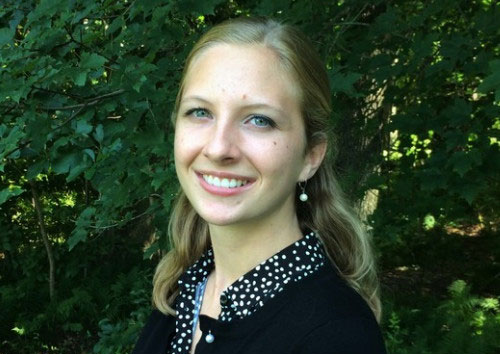Sean M. Healey & AMG Center for ALS
HEALEY ALS Platform Trial Patient Information
Contact Information
HEALEY ALS Platform Trial Patient Navigator
Sean M. Healey & AMG Center for ALS at Mass General
165 Cambridge Street, 6th floor
Boston,
MA
02114
Phone: 833-425-8257 (HALT ALS)
The HEALEY ALS Platform Trial was designed to decrease the amount of time it will take to find successful therapies, improve active study medication to placebo ratio, and increase access for participants. One of the innovative features of the Platform Trial is that enrollment will continue perpetually as more investigational medications are added over time.
Am I Eligible?Download Trial Brochure
Frequently Asked Questions

If you have additional questions about the HEALEY ALS Platform Trial, please contact the Patient Navigator by email at HEALEYALSPlatform@mgh.harvard.edu or by phone at 833-425-8257 (HALT ALS).
To learn more about clinical trials in general, and to view a list of frequently asked questions, visit the introduction to clinical trials web page.
General Questions
What is the current status of the trial?
The trial is now enrolling at numerous sites around the United States. The HEALEY ALS Platform Trial is perpetual and will continue to add clinical sites, participants, and experimental treatments. To get the latest updates and sign up for our weekly Q&A webinars, visit our news page.
How do I enroll in the trial?
If you are interested in participating in the trial, please contact the research coordinator at the site that would be most convenient for you. Specific factors affecting your participation might be discussed with the research coordinator. Contact information can be found on clinicaltrials.gov and on our locations listing here.
You are also welcome to contact our central Patient Navigator any time: please email HEALEYALSPlatform@mgh.harvard.edu or call 833-425-8257 (HALT ALS).
What should I expect during the enrollment process?
The research team at your site of interest will first want to review your medical records, which may need to be faxed if you are not an established patient at that center. After the research team reviews your medical records, they may request additional information or proceed with scheduling a prescreen. Typically, prescreens are conducted over the phone and serve as an opportunity to review the eligibility criteria for the trial in more depth. If the prescreen is successful, the research team might then offer a Master Protocol Screening visit, which is an in-person visit. The Master Protocol Screening visit is the final step to determine whether someone is eligible to participate in the Platform Trial, and it is at this visit that patients can decide to enroll in the trial if they are eligible.
When will the enrollment period end?
One of the innovative features of the HEALEY ALS Platform Trial is that enrollment will continue perpetually as more investigational medications are added over time. For each new drug regimen that is added to the trial, 160 participants will be enrolled. New drug regimens will continue to be added to the trial on a rolling basis. Thus, there is no end-date for the open enrollment period.
Is there a cost to participate?
There is no cost to participate. Research costs are covered by study funds and/or insurance.
How long does participation in the trial typically last?
The placebo-controlled portion of the trial lasts 24 weeks. Participants who complete the placebo-controlled portion of the trial might be eligible to receive active drug during the Open Label Extension (OLE).
How many study visits are there?
The Platform Trial involves about 7 to 8 in-person visits over a 6-month period. Study visits are relatively frequent, every 4 to 8 weeks.
Do all study visits need to be in person or is it possible to do some visits over the phone?
Some study visits might be done remotely if this is needed for safety due to the pandemic. Depending on where your center is located, if COVID becomes an issue, the center will put into effect measures to keep participants safe and continue the trial. These measures, such as phone calls and telemedicine, may look different depending on the center and would be best answered by that particular site’s research team. Contact information can be found on clinicaltrials.gov and on our locations listing here.
What should I expect at study visits?
During study visits, the team will collect a series of assessments including but not limited to physical exam, muscle strength, measures of respiratory function, questionnaires, EKGs and blood draws. Spinal taps are optional. The schedule will vary by visit and participants will be given the opportunity to ask questions about the exact schedule and procedures prior to making the decision to enroll.
Can I switch from one research site to another during the trial?
Once participants consent to be enrolled at a specific site for the Platform Trial, they would remain at the same site for the first 6 months of the study (the placebo-controlled period). Participants will not be able to switch sites during these first 6 months due to drug supply logistics.
Eligibility Criteria
What are the eligibility criteria?
The inclusion and exclusion criteria of the HEALEY ALS Platform Trial can be found on clinicaltrials.gov.
Can I be ineligible for a regimen?
Yes. Once a participant is assigned to a regimen, there will be a second screening visit to determine whether the participant is eligible to continue in that regimen. If a participant is not eligible for the regimen to which they are assigned, their participation in that regimen will stop and they can be randomly assigned to a different regimen.
Why is there a cut off for people who have the disease for 3 years or more?
One goal of the Platform Trial is to give people as much access as possible while maintaining enough statistical power (the probability that a positive effect can be detected if it exists). Statistical power is important in order to draw accurate and convincing conclusions about the safety and effectiveness of each treatment.
Broadening the inclusion/exclusion criteria (for example, increasing the time from 3 to 4 years since the onset of symptoms) would substantially reduce statistical power because it would increase the person-to-person variability by including participants with longer disease duration and slower progression. Therefore, broader eligibility criteria would lower the chances of seeing a positive treatment effect and a larger and longer trial would be required to be able to answer the study questions.
The overall goal of the Platform Trial is to find answers as quickly as possible in order to learn whether a treatment works or not as rapidly as possible. It is expected that positive drugs will be applicable to everyone, not just the people who are within the pre-specified cut-offs.
To find other trial options, please contact the clinical trial liaisons at NEALS and the HEALEY Center.
Exclusionary Medications/Supplements
What drugs and/or dietary supplements would make me ineligible for participation in the Platform Trial?
Please click here to view the exclusion criteria listed in the Master Protocol for the HEALEY ALS Platform Trial. As a general rule for most clinical trials, any supplements/medications that are under investigation in another trial are considered exclusionary, as they might affect the efficacy of the medications under evaluation.
Can I continue to take riluzole and/or edaravone?
Yes. If they wish to, participants enrolled in the HEALEY ALS Platform Trial can continue taking FDA approved medications for the treatment of ALS (such as riluzole and edaravone).
If a new drug receives FDA approval, will it be allowed in this study?
FDA-approved medications that become standard of care for people with ALS will be allowed in the Platform Trial.
Are stem cells considered an exclusion?
Concurrent use of stem cells is exclusionary. However, prior use of stem cells via intrathecal (injection into the fluid surrounding the spinal cord) or intravenous (injection into a vein) administration is allowed after the appropriate washout period. For example, participation in the NurOwn trial, which involves intrathecal administration of stem cells, is allowed after appropriate wash-out. Please note that any prior use of stem cells via direct injection into the brain or spinal cord is exclusionary due to the permanent changes induced by this type of intervention.
Is prior participation in clinical trials for familial ALS considered an exclusion?
Prior use of antisense oligonucleotides (a form of treatment that acts on the RNA in cells to reduce gene expression and modify protein production) is allowed after appropriate wash-out. Any prior exposure to gene therapies (a form of treatment that modifies a person’s genes) such as those delivered by viral vector (an injection that carries a gene-modifying virus into cells) is exclusionary due to the permanent changes that may result from gene therapy.
Investigational Products (Potential Therapies)
Why is it necessary to have a placebo group in a trial for a disease as serious as ALS?
The fastest way to develop new treatments for all people with ALS is to test new drugs in studies designed to give the answer quickly and without doubt. Currently, this is only possible by comparing the active treatment (new therapy) with a placebo.
What drugs/therapies are being tested in the Platform Trial?
Several investigational products (potential therapies) are being tested. The first five investigational products have already been selected and more will be added over the next few months. Throughout the trial, the number of regimens that are available at any given time will depend on the number of study drugs that are available for the trial at that time.
How were the investigational products chosen for inclusion in the Platform Trial?
All investigational products in the Platform Trial were chosen by a committee of expert ALS scientists and clinicians based on scientific rationale supporting a trial in people with ALS. Criteria for selection included robust preclinical data (data from the lab that support the scientific rationale for testing these products in ALS) and previous human experience in ALS or other neurological diseases (to support the dose, safety and target engagement of the product and its inclusion in a late stage trial such as the Platform trial).
How will the investigational products affect ALS symptoms?
The goal is to develop effective treatments for ALS; it is not yet known whether these treatments will slow down or completely stop disease progression. By accelerating trial execution timelines with the Platform approach, the hope is to test several candidate treatments rapidly to find many that are effective. To read about the investigational products included in the Platform Trial, click here.
Can I choose the investigational product regimen I want to join?
Participants in the Platform Trial are randomly assigned to one of the investigational product regimens; neither the researchers nor the participants choose the treatment option and there is an equal chance of being assigned to any of the regimens. The regimen that a participant is assigned to will determine which study product they might receive (there is a 75% chance of receiving the study product, and a 25% chance of receiving a placebo). Participants will be told which regimen they are assigned to and the name of the study drug. Of note, each regimen has an equal chance for success based on scientific evidence reviewed by the trial researchers. To watch a short video explaining the HEALEY ALS Platform Trial design, click here.
Will any of the investigational products in this trial become FDA-approved?
Because the Platform Trial is a late stage trial, data derived from the trial, if positive, could be used to support approval of new medication for ALS treatment. Researchers would work with the drug companies that supply the investigational products for the trial to make sure that, if a treatment does prove to be useful, the treatment could continue to be provided to people with ALS while regulatory discussions are ongoing.
Platform Trial Terminology
Platform Trial
A "platform trial" is a clinical trial in which multiple treatments are evaluated simultaneously. New treatments are added to the platform as they become available, thereby decreasing the gap in time from identification of an exciting therapy to testing. This model will greatly accelerate therapy development of effective and breakthrough treatments for people with ALS by allowing investigators to test more drugs, increase patient access to trials, and reduce the cost by quickly and efficiently evaluating the effectiveness of multiple therapies. To watch a short video explaining the HEALEY ALS Platform Trial design, click here.
Late Stage Trial
The Platform Trial is a late stage trial, meaning that data derived from the trial, if positive, could be used to support approval of new medication for ALS treatment.
Double-Blind Placebo-Controlled Trial
The Platform Trial is a double-blind placebo-controlled trial. This type of trial is considered the “gold standard” for clinical trials because it has the best chance of determining whether an active treatment is effective. In this type of trial, there are two groups: one group gets the active treatment, the other gets the placebo. Neither the researchers nor the research participants know who is getting active medication and who is getting placebo. The active drug to placebo ratio is 3:1 across all regimens in the Platform Trial, and 160 participants will be assigned to each regimen.
Placebo-Controlled Period
The placebo-controlled period of the Platform Trial comprises the first 24 weeks of the study, during which time participants may be receiving either active study drug or placebo for the regimen to which they are assigned.
Placebo
A placebo is an inactive substance that looks and tastes like the drug being tested but has no effect on the disease the new drug is intended to treat; in this case, ALS.
Active Treatment
The active treatment, or active investigational therapy, is the drug that researchers are testing to see if it will help ALS patients. It is important to remember that “active treatments” are experimental drugs: the drug could have a positive effect, no effect at all, or be detrimental.
Regimen
After enrolling in the HEALEY ALS Platform Trial, participants will be randomly assigned to one regimen. Each regimen tests one drug. Throughout the trial, the number of regimens that are available at any given time will depend on the number of study drugs that are available in the platform at that time. To watch a short video explaining the HEALEY ALS Platform Trial design, click here.
Random Assignment
Random assignment means that, at the time of their enrollment, participants are assigned to one of the available drug regimens by chance; neither the researchers nor the participants choose the regimen and there is an equal chance of being assigned to any of the regimens.
People with ALS are a diverse group. Random assignment allows for that diversity to be spread equally between the active treatment and placebo groups, which increases the chances that any benefit seen will be due to differences in treatment rather than differences in the trial participants.
Master Protocol
The Platform Trial uses a single Master Protocol, which is a schedule of study visits and study procedures. Each regimen in the trial will follow the Master Protocol but may include additional activities and more specific inclusion/exclusion criteria.
Eligibility Criteria
Eligibility criteria, also known as inclusion/exclusion criteria, are the key characteristics a person must have in order to be able to participate in a specific research trial. Inclusion criteria specify the requirements that people must meet to be considered as a possible research participant, whereas exclusion criteria specify the criteria that would prevent someone from being able to participate.
Washout Period
The washout period is the time it takes the body to clear a prior drug or treatment from its system. This period is typically defined as 5 half-lives (if known) or approximately 30 days.
Open Label Extension
Every participant who completes a regimen may have the option to receive the active study medication in an open label extension (OLE), during which both the researcher and participant know that the participant is receiving the active treatment. Most regimens in the Platform Trial will offer an OLE, though the duration of the OLE may vary by treatment.
Expanded Access Protocol
An expanded access protocol (EAP) is being built in parallel to the HEALEY ALS Platform Trial. The addition of an EAP will allow access to the investigational treatments for people who are not eligible for the trial. The EAP will initially enroll only a small group of participants, but the hope is to continue to expand this option based on fundraising. The EAP is anticipated to start in 2021 depending on regulatory approvals. To stay up to date, sign up for the ALS Link, register to attend future webinars, and visit the Expanding Access to Therapies webpage.
Find Out If You're Eligible
We've prepared a short list of questions to help you find out if you might be eligible to participate in the HEALEY ALS Platform Trial.
Please note that the result of this survey does not serve as official confirmation of your eligibility, as many factors are considered prior to study participation (view a full list of inclusion / exclusion criteria here). Determining eligibility for the Platform Trial will depend on a thorough assessment of your clinical symptoms, review of past medical history, and lab work that can only be performed by an investigator (doctor or nurse practitioner) on the trial.
Eligibility QuestionsWe're conducting the trial at numerous NEALS sites across the country.
This provides greater trial access for those affected by ALS.
Platform Trial News
Get the latest news and updates about the HEALEY ALS Platform Trial.
Learn More About the Study
Get details about the trial, its design and who can participate at the official NIH clinical trials site.
Work With Us
If you're a researcher looking to collaborate with the Healey Center or a patient interested in participating in the Platform Trial, we want to hear from you!



